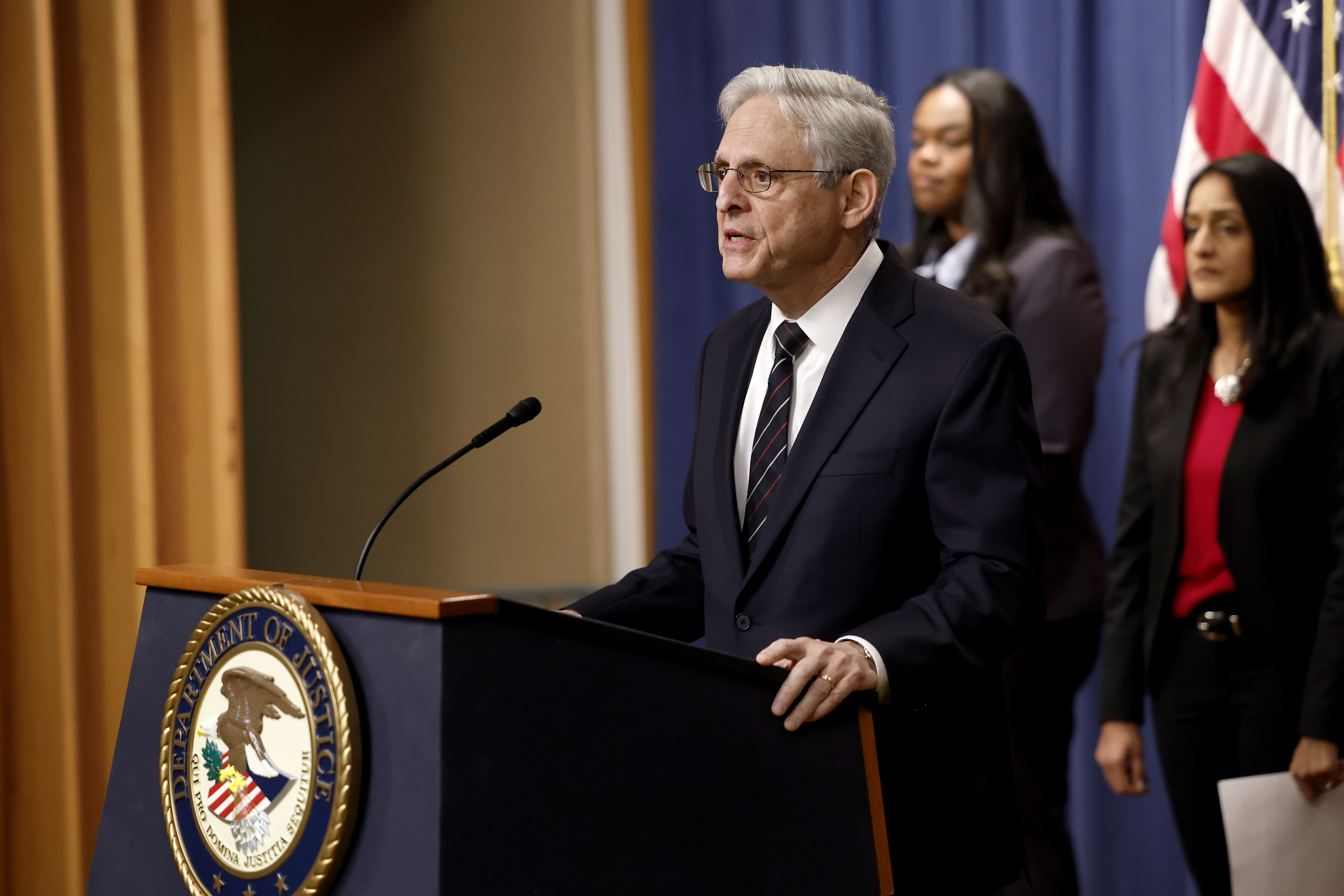Google will face off in court on Tuesday against government officials who have accused the company of antitrust violations in its massive search business, launching a long-awaited legal showdown that could reshape one of the internet's most dominant platforms.
The trial, which began this week before a federal judge in Washington, marks the culmination of two ongoing lawsuits against Google that began during the Trump administration.
Legal experts describe the actions as the nation's largest monopoly case since the U.S. government took over Microsoft in the 1990s.
In separate complaints, the Justice Department and dozens of states accused Google in 2020 of abusing its dominance in online search for allegedly harming competition through deals with wireless carriers and smartphone makers that made Google Search the default or exclusive option on products used by millions of consumers.
The complaints eventually merged into a single case.
Google says it competes on the merits and that consumers prefer their vehicles because they are the best, not because it has moved to illegally restrict competition.
Google's search business generates more than half of the $283 billion in revenue and $76 billion in net revenue that Google's parent company Alphabet recorded in 2022.
The search boosted the company's growth to more than $1.7 trillion in market capitalization.
Now, the company is gearing up to defend itself in a multi-week trial that could change the way Google distributes its search engine to users.
The lawsuit is expected to include testimony from high-profile witnesses, including former employees of Google and Samsung, as well as Apple's executives, including senior vice president Eddy Cue.
This is the first in a series of court battles targeting Google's far-reaching economic power and testing the courts' willingness to crack down on the big tech platforms. \This is retrospective at a time of unprecedented innovation,\ said Kent Walker, Google's Head of Global Affairs, adding: \Breakthroughs in AI, including new applications and new services, are all creating more competition and more options for humans than ever before.
People don't use Google because they have to—they use it because they want to.
Changing your default search engine is easy – we're long past the era of dial-up internet and CD-ROMs.
The hearing could also be a precursor to the Biden administration's more ambitious antitrust agenda.
In its initial complaint, the U.S. government alleged in part that Google pays billions of dollars a year to device makers like Apple, LG, Motorola and Samsung, and browser developers like Mozilla and Opera to be their default search engines and, in many cases, to ban Google from messing with its competitors.
As a result, the complaint alleges that Google effectively owns or controls the search distribution channels, which account for about 80 percent of general search queries in the United States.
The lawsuit also alleges that Google's agreements with device makers of the Android operating system are anti-competitive because they require smartphone companies to pre-install other Google-owned apps, such as Gmail, Chrome or Maps.
When the lawsuit was first filed, U.S. antitrust officials did not rule out the possibility of Google's dissolution, warning that Google's behavior could threaten future innovations or the rise of a Google successor.
Separately, a group of states led by Colorado have filed additional claims against Google, claiming that the way Google structures its search results page harms competition by prioritizing the company's own apps and services over web pages, links, reviews, and content from other third-party sites.
But the judge overseeing the case, Judge Amit Mehta of the U.S.
District Court for the District of Columbia, rejected those claims in a ruling last month, narrowing the scope of the claims Google must defend and saying states had not done enough to show that a trial was necessary to determine whether Google's search results rankings were anti-competitive.
Despite that ruling, the lawsuit represents the U.S. government's furthest advance to date in challenging Google.
Mehta said Google's pole position among search engines in browsers and smartphones is a \hotly debated topic\ and that the experiment will determine whether Google's position as the default search engine in multiple browsers is an exclusionary form of behavior, as a matter of \actual market reality.\ Meanwhile, in January, the Biden administration filed another antitrust lawsuit against Google against the company's ad-tech business, accusing it of protecting an illegal monopoly.
That case remains in its early stages in the U.S.
District Court for the Eastern District of Virginia.

